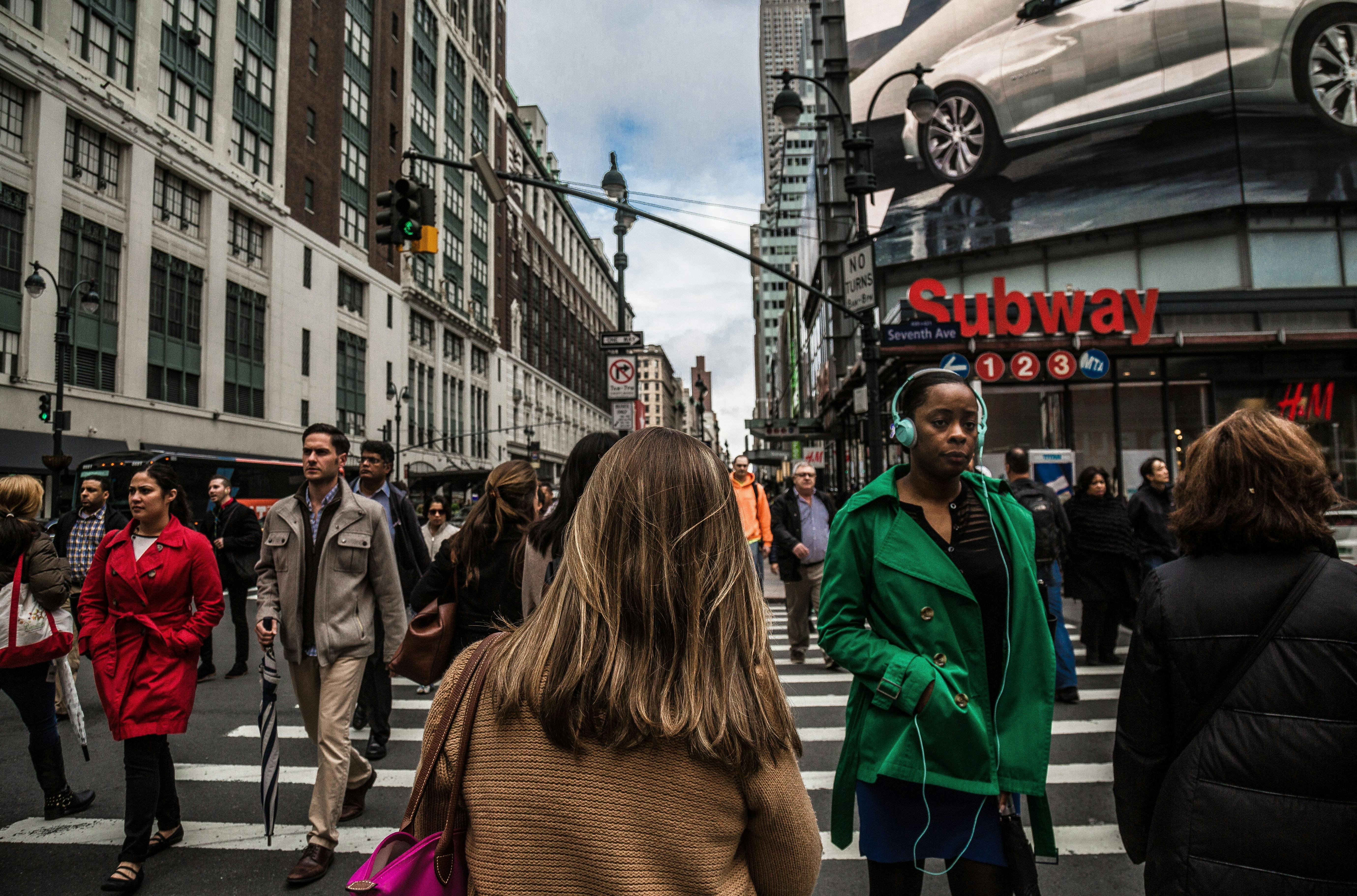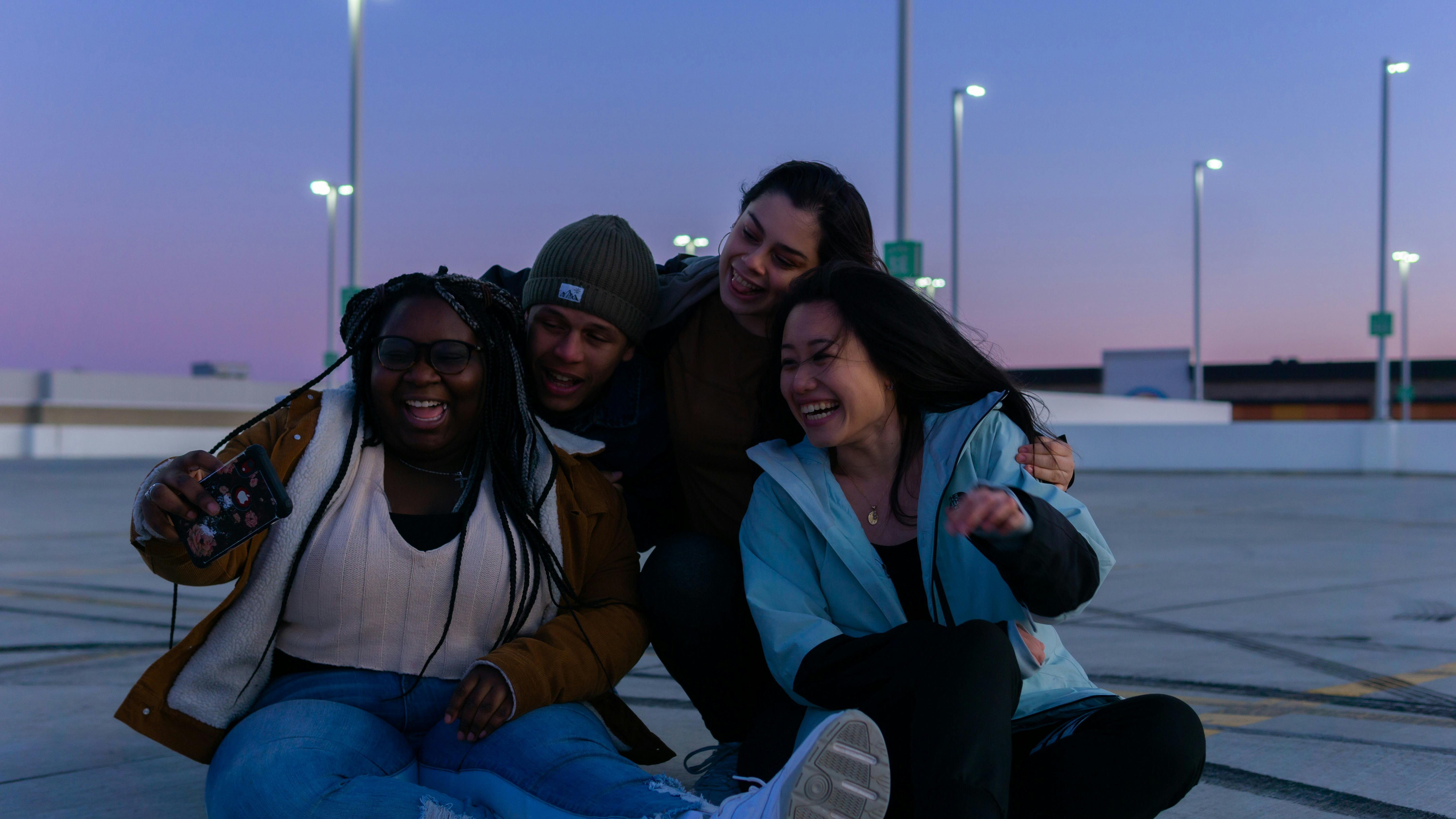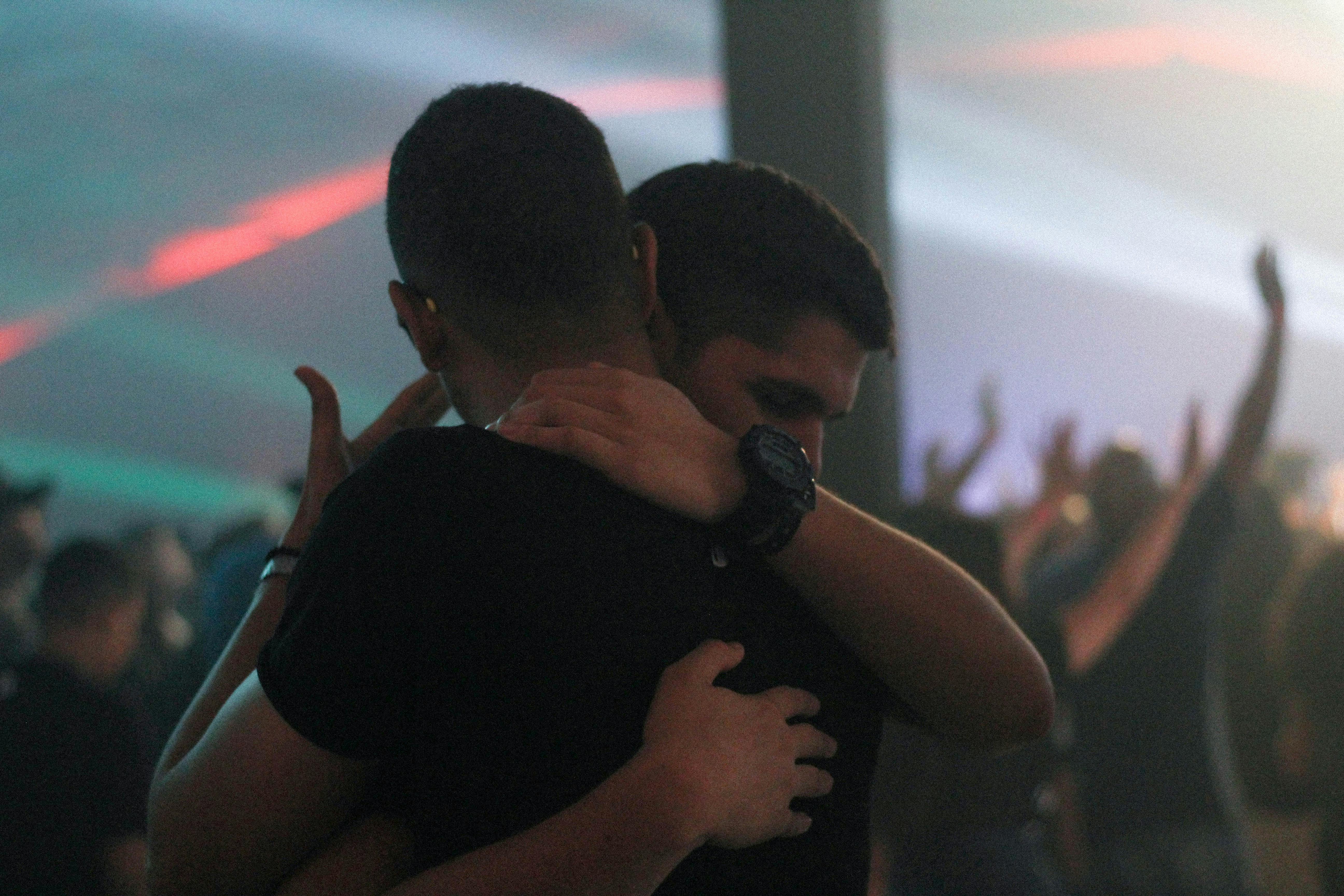“You need to take care of yourself first. Make yourself a priority because no one else will.”
Have you ever heard that advice? I know I have. Heck, I’ve even given that advice before. But recently, I heard someone say those words of ‘counsel’ (for what felt like the thousandth time), and I felt a heaviness sink through me.
“How lonely is that?” is all I could think. ‘No one else will take care of me’…really? I’m on my own? Is it that crazy to want friends—and not just acquaintances—but people I can lean on?
I still believe it is important to work to take care of myself. I’m all for self-care. But If I have no one else caring for this self, then me, myself and I are in trouble. Because I’ve done my own thing, and it always ends with me being lonely.
There had to be a better way.

Friendship in Our DNA
As I wrestled with this, I thought back to the beginning, the story of creation in the book of Genesis. God was establishing light and darkness, land and sea, man and animal—and everything he created, he called “good” (even spiders, I guess).
That is, until God saw Adam alone, without another human. We see here God’s first declaration of something being “not good” in that, “It is not good for the man to be alone.” Therefore, God made Adam a companion in Eve.
I believe the voice inside me earlier saying, “How lonely is that?” echoes God’s words, “It is not good for the man to be alone.” Meaning, it is not good for me to be alone. And I don’t think this word from God only refers to ‘finding a spouse,’ but also companionship and friendship.
To some degree, we all understand that. How many of us have Googled “how to make friends as an adult”? I’ll raise my hand on that one. Maybe you’ve picked up a hobby, joined a team or club, sat through an awkward happy hour, or even joined a church just to meet people and make friends.

I can’t tell you how many times I gathered the courage to show up somewhere, but the introvert in me panicked and forgot actually to talk to anyone there. Maybe, like me, you’ve found yourself sitting in these places surrounded by people and still felt lonely.
The Path to Finding True Community
And I believe that’s because community—the community we were made for—is about more than just being near people. It’s about knowing and being known, helping and being helped, inviting people into our lives, and learning to rely on each other.
How do we practically do this? How do we pursue deep, meaningful relationships while not leaving our personal health out to dry?
I have been working on this over the past couple of years, and through much difficulty and a million reasons to give up, God helped provide a true and deep community for me. And while it’s still a work in progress (and always will be), I’m more joyful with God and others than ever in this life space. And it started with these steps:

Step 1: Identify Them
When I started this journey, I realized I had a lot of casual friends. People were around me, and I liked them, but I didn’t feel connected to them. So, I started looking at the people in my life and trying to identify the people I wanted to get closer to.
I considered things like their sense of humor, interests, values, and phase of life. I thought about those who already invited me to hangouts, whom I felt safe around, who were generous friends, and who I wanted to be like.
Then, I started seeking them out and spending time with them. Now, I had to take my time in this because building friendships takes a lot of work at the beginning, and I knew I couldn’t manage this with a bunch of people at once. In some cases, I offered to treat them to lunch or coffee. Others I intentionally sought out at church or work. In most cases, I was open about why I was doing this - because I needed deeper friendships, and they seemed like they’d be a great friend.
Some weren’t looking for that or weren’t a good fit as I got to know them better. But others were also feeling lonely and, like me, looking for something deeper. As I worked through this, I didn’t find one big group of friends as I’d originally thought, but several smaller groups and individuals ready to go deeper.

Step 2: Spend Time With Them
One of the toughest pills I had to swallow as an adult was realizing that community is rarely convenient, so I could not find the community I was made for if I was too busy to spend time with anyone. I couldn’t build the relationships where you help and encourage each other if we didn’t know each other. And you don’t know each other if you don’t spend time with each other. It needed to become a priority.
In the first couple of months of friendship, I found it helpful to have consistent time to spend with these friends. I had one group that would get lunch after church together every week, another friend and I set up a weekly happy hour, and others were people I served with weekly.
But as I learned - just spending time together wasn’t enough. In the community we were made for, we are known, and we know our friends. I started asking questions and sharing things that are important to me. I also learned not to trauma-dump right away, but over time, let people know more about me and sought to know more about them.
I believe one of the reasons we feel lonely in relationships is because we feel like we have to hide big parts of ourselves to be accepted. Vulnerability is scary, but when someone really knows you and still chooses to be your friend, it’s so much more fulfilling. As Paul says…
“…so we cared for you. Because we loved you so much, we were delighted to share with you not only the gospel of God but our lives as well.” (1 Thessalonians 2:8).

Step 3: Start Helping Them
Eventually, I found the people I wanted to be around who were helping me grow, and I was spending time with them and getting to know them. For many people, this is where they stay because, in our independent culture, that’s the expectation.
Our culture teaches independence. ‘The American Dream’ is that ‘if I work hard enough, I can make something of myself.’ It’s ‘every person for themselves’ struggling to establish a unique persona and life that doesn’t need help. Dependence on others is portrayed as weak and a crutch.
But hey, I don’t believe dependence is the answer, either. In Genesis, God shows how we were made for interdependence. In a letter to an early church, Paul describes what this looks like:
“…in humility value others above yourselves, not looking to your own interests but each of you to the interests of the others” (Philippians 2:3-4).
This is a heavy calling: ignore yourself and look out for the needs of others. But the idea is that if everyone is looking out for other people’s needs, all the needs are met. You are not to expect people to wait on you hand and foot; you are to be the one that is serving others. I think this is the community God made us for.

I knew if I wanted to move out of independence and into interdependence, I had to help set the precedent. I had to help show people how wonderful having friends take care of you is. I started looking for ways to help them, like bringing them their favorite snack during a rough week, sending a note of encouragement, and watching their kids so they can run some errands. If they shared worry about a meeting or appointment, I would set a reminder right before it and send them a text with a prayer.
I thought about what I am good at and what resources I have and looked for little and big ways to help them. It was certainly reciprocated a lot of the time, but when it didn’t naturally happen…I had to learn another lesson:
Step 4: Ask for Help
This was the hardest step for me. Since I was young, I’ve tried to take care of myself and try not to be a burden on other people. And I often felt like if I needed help, people would see me as a burden and resent me. Which means I’m terrible at accepting help. So, asking for help? My worst nightmare.
But the community I was made for is about everybody caring for each other, which means I must let people help me. But then we’re right back to the problem from earlier—how do we get other people to take care of us?
To start, you ask.
At this point, I had people who liked me, wanted to spend time with me, and were thankful for me. And maybe they even wanted to help me, but they didn’t know how. So when I found easy and practical things to ask them, they often said yes.
I personalize the asks to the person to make them an easy ‘yes.’ I asked my worship music-obsessed friend to make me a joyful worship playlist to help combat my seasonal depression.

You could ask your crafty friend to help you with a project. Ask your handy friend to fix something. Ask to borrow something. Ask them for a ride. Ask them to pick up medicine when you’re sick.
I saw as my friends got to help me, they learned how to help me. They even started helping me without being asked at times.
Step 5: Grace on Grace
With all of these steps, I had to learn to show a ton of grace to not just myself but the people I was pursuing because these steps can feel like broken ones that even knock you back at times. We’re dealing with people here. You know, flawed and imperfect.
Therefore, they will fail me. Sometimes, they will hurt me, listen when they should speak and speak when they should listen, forget my birthday, be bad at calling, and just flat-out let me down. But good friends and community will acknowledge and own their mistakes, and I’ve had to do the same because I am far from the perfect friend.
The words of Jesus encourage me daily to press into my friendships when I feel tempted to cut them loose, walk away and say, “It’s just too hard.”
“Therefore, as God’s chosen people, holy and dearly loved, clothe yourselves with compassion, kindness, humility, gentleness and patience. Bear with each other and forgive one another if any of you has a grievance against someone. Forgive as the Lord forgave you.” (Colossians 3:12-13).

It is far ‘easier’ to take the road of independence, to shield yourself from the hurt of other people, to act like you don’t need them, or keep yourself at an arm’s-length to avoid getting too close. I’ve been there—but have seen how powerful and life-giving the other side can be when you’re willing to dive in.
It took a while, but through much prayer and effort, I eventually found the community that didn’t make me feel lonely and, even better, made me feel full of life. I found community where I am known and cared for. I found interdependent community. I found the community you and I were made for.
If you are stuck at the first step and don’t have people around you to reach for, try joining a group at Crossroads to find other people looking for community.
Disclaimer: This article is 100% human-generated.













